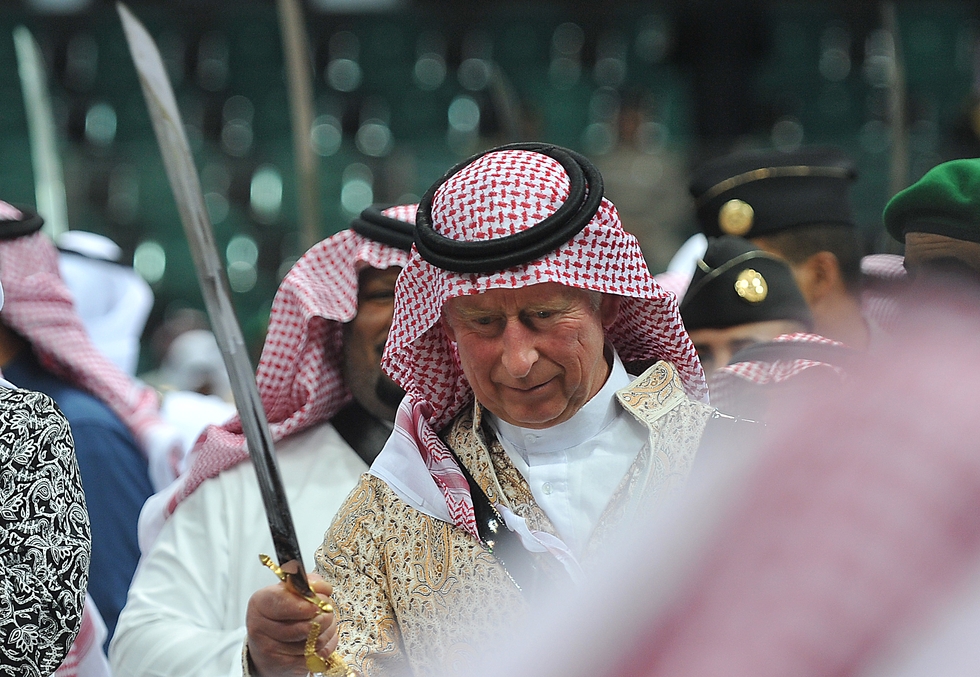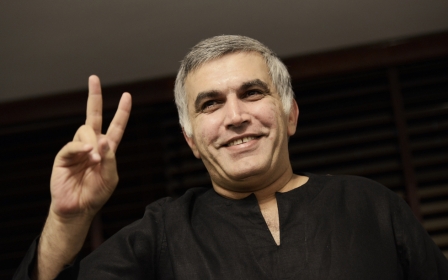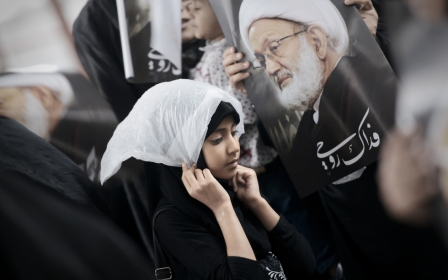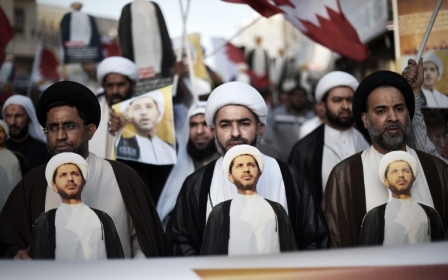Prince Charles to visit Bahrain amid claims of rights abuse

Prince Charles and his wife Camilla will visit Bahrain later this year despite growing concerns about a crackdown on human rights in the small Gulf kingdom.
Clarence House said on Tuesday that Charles would visit in November on behalf of the British government and was aimed at strengthening the UK’s “warm bilateral relations with key partners in the region”.
The UK has long had close ties with Bahrain, which hosts a British military base and buys millions of dollars of British arms every year.
The two royal families are also said to have close personal ties, with King Hamad notably sitting next to the queen during her 90th birthday celebrations earlier this year.
But the close ties have come under growing criticism since 2011 when Arab Spring-inspired protests in the kingdom were brutally crushed and many activists and political opponents imprisoned.
“The timing of Prince Charles visit suggests that the major human rights violations in 2016 are not in the British monarchy's mind,” Sayed Ahmed Alwadaei director of advocacy at the Bahrain Institute for Rights and Democracy said in a statement.
“The UN High Commissioner for Human Rights called Bahrain's attempts to smash the voices of its people disastrous last week. Prince Charles's visit not only tells Bahrain that the UK doesn't care that torture victims are on death row and critics face decades in prison, it actively endorses this repression.”
The crackdown has continued since and seemingly intensified again in recent months after a notable opposition Shia cleric, as well as journalists, poets and activists were all arrested, detained or had their citizenship revoked by the country’s Sunni rulers. The country’s main opposition party al-Wefaq National Islamic Society was also suspended and some of its leaders arrested.
Despite this, however, the UK has repeatedly tried to emphasise its close ties to the king and sent in high-ranking military officials in to visit the country. It has also allowed its police to train local forces in a move legal critics said raised serious concerns about the government’s commitment to upholding human rights abroad.
In February, documents leaked to the Observer showed that the UK and Saudi Arabia had aggressively lobbied the UN to tone down its criticism of human rights violations that include accusations of torture by security officials.
The tone coming out of the UK, which has always said that it finds it more constructive to bring up issues privately, is increasingly at odds with the message coming out of Brussels and Washington.
In July, the European Parliament adopted a resolution condemning recent human rights abuses and calling for the immediate and unconditional release of leading human rights activist Nabeel Rajab as well as many other political prisoners.
The US has also taken a stricter tone, at the UN calling on Bahrain to "reverse these [rights violating] measures".
Earlier this month, the US State Department called on Bahrain to immediately release Rajab who is in prison for "spreading false news and rumours about the internal situation in a bid to discredit Bahrain".
"We call on the government of Bahrain to release him immediately. We have concerns about the state of human rights in general in Bahrain and we're engaging with the government... on all these issues," spokesman Mark Toner said.
Charles will also visit the UAE and Oman as part of the November tour.
This article is available in French on Middle East Eye French edition.
New MEE newsletter: Jerusalem Dispatch
Sign up to get the latest insights and analysis on Israel-Palestine, alongside Turkey Unpacked and other MEE newsletters
Middle East Eye delivers independent and unrivalled coverage and analysis of the Middle East, North Africa and beyond. To learn more about republishing this content and the associated fees, please fill out this form. More about MEE can be found here.




